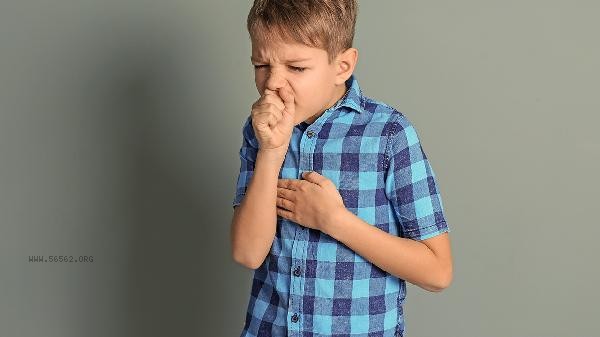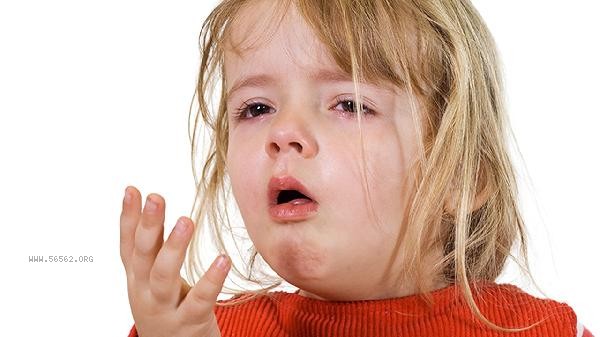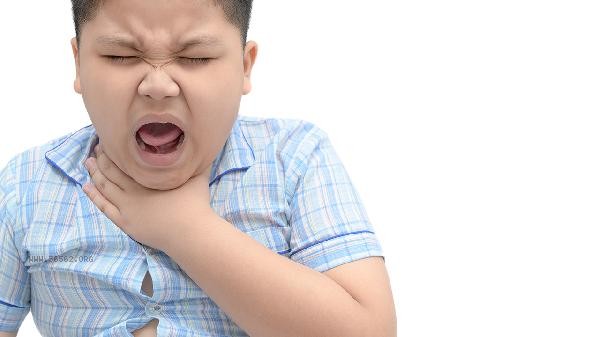Children with bronchitis and cough can eat snow pear, white radish, loquat, lily, tremella and other foods in moderation, and can also use drugs such as Xiaoer Feire Kechuan Oral Liquid, Xiaoer Kechuanling Granules, Xiaoer Qingfei Huatan Granules, Ambroxol Oral Solution, Acetylcysteine Granules and so on according to the doctor's advice. It is recommended that parents take their children to the hospital in a timely manner, take medication under the guidance of a doctor, and cooperate with dietary adjustments.

1. Food
1. snow pear
snow pear has the effect of moistening the lungs and promoting fluid production, which can alleviate dry cough or dry cough to some extent. It can be peeled, cut into pieces, steamed, and consumed to avoid raw, cold, and irritating foods. Children with wind cold cough or spleen and stomach deficiency cold should not consume excessively.
2. White Radish
White radish can reduce phlegm and cough, suitable for cough with thick and sticky phlegm. Can be boiled in water or paired with honey for consumption. Children with qi deficiency and diarrhea should consume small amounts to avoid exacerbating gastrointestinal burden.
3. Loquat
Loquat leaves and fruits have cough relieving effects, and loquat paste has a relieving effect on cough caused by tracheitis. Fresh loquat should be eaten without kernels, 3-5 pieces per day are recommended. Children with diabetes need to control their intake.
4. Lily
Lily can nourish yin and moisten the lungs, suitable for children who cough and injure yin for a long time. Can be boiled with Tremella fuciformis to make soup, consumed 2-3 times a week. People with wind cold cough or loose stools should use it with caution as it may worsen symptoms.
5. Tremella fuciformis
Tremella fuciformis is rich in glial cells that can moisturize the respiratory tract and alleviate dryness, itching, and cough caused by tracheitis. Suggest stewing until soft and tender before consumption, avoiding adding too much sugar. Children with allergies need to observe their reactions when consuming it for the first time.

2. Medication
1. Pediatric Pulmonary Heat Coughing and Asthma Oral Liquid
is suitable for cough and phlegm caused by wind heat invading the lungs, and can clear heat, detoxify, promote lung function, and reduce phlegm. It mainly contains ingredients such as ephedra and bitter almonds. During the medication period, it is necessary to avoid eating spicy and greasy food to avoid affecting the efficacy of the medicine.
2. Xiao'er Kechuanling Granules
are used for cough caused by phlegm heat obstructing the lungs, and have the effect of relieving asthma and cough. Containing ingredients such as honeysuckle and Isatis root, slight diarrhea may occur after taking medication. If symptoms persist, timely follow-up visits are needed to adjust medication.
3. Xiao'er Qingfei Huatan Granules
can dilute phlegm and promote its excretion for cough caused by lung heat and excessive phlegm. During medication, it is recommended to drink more water and observe changes in sputum characteristics. When used in combination with antibiotics, it should be taken with a 2-hour interval.
4. Ambrotorol oral solution
Western medicine preparations can alleviate bronchial spasms and thick sputum, suitable for acute bronchitis cough. Possible side effects such as palpitations may occur, and heart rate changes should be monitored during medication.
5. Acetylcysteine granules
exert expectorant effects by decomposing sputum mucin, and are suitable for sputum obstructive cough. Children with asthma should be cautious when using it, as it may induce bronchospasm. Medication should be taken under the supervision of a doctor. Parents should keep their children's living environment ventilated and humid, and avoid exposure to cold air or irritating odors. A light and easily digestible diet is recommended, and drinking warm water in small amounts multiple times can help dilute phlegm. If coughing persists for more than a week or symptoms such as fever and shortness of breath occur, immediate follow-up should be conducted to assess the progression of the condition. When coughing worsens at night, the pillow can be raised appropriately to reduce the stimulation of gastroesophageal reflux. During the recovery period, moderate back patting and expectoration can be performed, but avoid coughing induced by vigorous exercise.










Comments (0)
Leave a Comment
No comments yet
Be the first to share your thoughts!